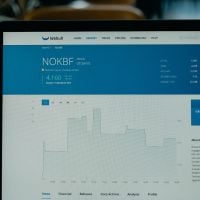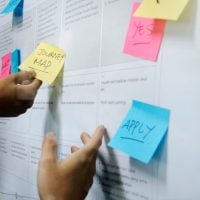Deadline: 30-Apr-23
UN Women is accepting proposals for its project entitled “Advancing Inclusive Women’s Political Participation in Iraq” which focuses on supporting emerging female leaders across civic spaces (university, and syndicates) to occupy spaces of leadership within their sectors, including in elected bodies.
The project is structured on three pillars that seek to support multidimensional approaches that address both the practical and structural constraints to women’s voice, decision-making and leadership. It aims to support women’s leadership in more traditional elected spaces for Parliament, local council and local government, as well as supporting leadership in civic spaces.
This proposal focuses on supporting emerging female leaders across civic spaces (university, and syndicates) to occupy spaces of leadership within their sectors, including in elected bodies. Proposals should suggest interventions to achieve the following outcome, activities, and indicators below, utilizing the approach recommended by the proponent.
Aims
The project strategy aims to:
- Support women’s political and civil leadership, with a focus on making progress through elected processes and political parties, including through the introduction of voluntary gender quotes within political parties, as key pipelines to power and decision-making in Iraq.
- Support feminist social activism, through social mobilization and social accountability processes, enhance efforts to promote positive social norms that reinforce gender equality and support for women’s leadership
Funding Information
- The budget range for this proposal should be [$130,000- $150,000]
- Timeframe: June 2023—June 2024 (12 months)
Expected Results
Concretely this is expected to translate into the following results:
- Strengthened newly elected female leaders’ ability to influence decisions and demand their rights.
- Strengthened ability of potential candidates and leaders at the local level to demand their rights and engage in decision-making at all levels.
- Increased use and application of Temporary Special Measures to increase women’s leadership and representation within Iraq’s political parties.
- Mitigated obstacles to women’s participation in public life by addressing violence against women in politics.
Outcomes
- This proposal focuses on supporting emerging female leaders across civic spaces (university, and syndicates) to occupy spaces of leadership within their sectors, including in elected bodies. Proposals should suggest interventions to achieve the following outcome, activities, and indicators below, utilizing the approach recommended by the proponent.
- Outcome 2: female leadership is supported and promoted, to create a shift away from tokenism in women’s repre4sentation to a critical mass of female leaders.
- Output 2.3.: Emerging female leaders across civic spaces (university, and syndicates) are supported to occupy spaces of leadership within their sectors, including in elected bodies.
Activities
- Develop a sectorial assessment to identify sectors of focus that can accelerate women’s civic engagement and leadership.
- This activity will involve a mapping of university clubs and syndicates for both impact within broader national decision-making and thought leadership, and for opportunities for change. From this, at least 4 sectors will be identified to be targeted, with a clear rational developed for each, and in discussion with the leadership from selected sectors/syndicates. Within each a mapping of current and potential female leaders will be undertaken.
- Develop a database of female leaders in the sectors of focus.
- Under this activity, members of each sector (male and female) will be supported to assess their sector and develop a roadmap for supporting women’s leadership and representation. Support will then be provided to those within the sectors, and allies beyond, to implement the road maps.
- Develop sectorial roadmaps to support women’s leadership and representation.
- This activity will include working with identified women to provide them with coaching and training on leadership and decision-making, drawing on the trainings developed.
- Provide technical support to implement sectorial roadmaps.
- Under this activity, mentoring relationships will be developed between current, and future potential female leaders across above identified sectors and women in elected positions. To support this, networking events and closed-door discussions will be fostered. This will also include providing mentees with the opportunities for constituencies building. The project will support creating spaces which showcase and make visible such results for both mentors and mentees.
- Develop leadership training material and organize workshops for female leaders.
- The training material and workshops under this activity should aim at strengthening female leaders’ skills, knowledge, and awareness to influence decision and demand their rights.
- Organize networking sessions and events between female leaders and elected officials.
- Strengthen female leaders’ exposure and awareness to the political sphere and share expertise with elected officials and establish networking between female leaders and elected officials through joint sessions and events between both parties to strengthen the ability of female leaders to demand their rights and engage in decision-making processes.
- Organize awareness raising campaign on social media to highlight the role of women in the parliament and quota.
- Under this activity, the campaign on social media should highlight the importance of women inclusion and women’s role in the parliament and quota aiming at raising the awareness of the different sectors of community. This can be achieved through factual posts, interviews with women in leading or decision-making positions or human interest stories.
Competencies
- Technical/functional competencies required
- In the selection of partners, the following competencies will be considered:
- Soundness of technical competency described in the approach to the project as described in the Terms of Reference for the Call for Proposals, to be demonstrated by a track record of successful programmatic interventions
- Capacity to deliver expected results: governance and management competency, and financial and administrative competency, demonstrated by previous partnerships with UN Women or other donor organisations.
- Relevance of the mandate and the role of the organization to implement expected results and to contribute to the sustainability of said results, demonstrated by expertise in gender-related work and community outreach.
- In the selection of partners, the following competencies will be considered:
- Other competencies, which while not required, can be an asset for the performance of services
- UN Women is soliciting proposals from Civil Society Organizations (CSOs). Women’s organizations or entities are highly encouraged to apply.
For more information, visit UN Women.









































